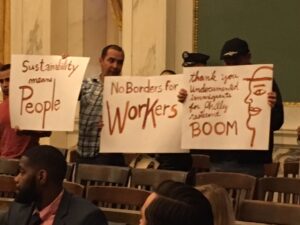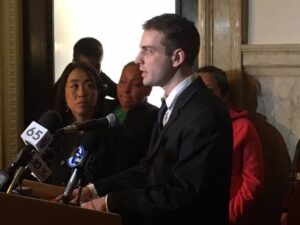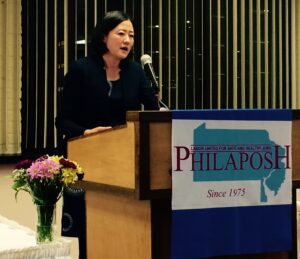The Washington Post just announced that Bedford County, PA has reversed its policy of refusing to honor detainers by U.S. Immigration and Customs Enforcement (ICE). The county did so in response to being labeled as a “sanctuary city” by immigration-restrictionist groups like Federation for American Immigration Reform (FAIR).
Using the Sheller Center’s Report on ICE detainers in Pennsylvania, written by students in the Social Justice Lawyering Clinic, groups like FAIR have been slapping labels on jurisdictions within Pennsylvania. These groups, however, overlook the essential details of the Report, which never once uses the word “sanctuary.” Rather, the Report discusses local policies on ICE detainers in the aftermath of the Third Circuit decision in Galarza v. Szalczyk.
Some background: detainers are requests by ICE to local authorities to hold individuals, who would otherwise be released, for pick-up by ICE. In Galarza, the Third Circuit held not only that ICE detainers constitutionally could only amount to requests (as opposed to mandatory orders), but also that local jurisdictions could be held liable for choosing to wrongfully imprison someone solely on the basis of an ICE detainer. Our Report subsequently found that nearly half of Pennsylvania’s counties had decided, for these and other reasons, not to honor ICE detainers. Officials who volunteered their motivations mostly referred to the Galarza decision, while several mentioned the practicalities of limited bed space or the lack of reimbursement from the federal government.
But now Bedford County is backtracking because of the “sanctuary” label. Would Bedford County have left its policy in place if it had been called something else? Maybe. In our discussions with one Bedford County official, we were left with the impression that the policy change had been carefully considered after realizing that ICE holds were not mandatory and that the county faced potential legal liability.” Had the “sanctuary” label not been applied, county officials might have drawn on these discussions to explain to their residents the value of the policy in protecting the county from liability. Or one could imagine county officials convincing residents of the need to conserve law enforcement resources to address local problems rather than federal concerns.
So is the lesson for immigrant advocates to back away from the word “sanctuary”? As the Bedford County story confirms, the term has become pejorative in some circles (legislators in Harrisburg currently have four bills targeted against sanctuary cities and campuses). Some also believe that the term sanctuary is problematic because it inaccurately describes a refuge or place of safety – while the truth is that, regardless of a city’s policy regarding cooperation with ICE, ICE can enforce federal laws in any jurisdiction. But other people embrace the term “sanctuary,” because it connects to historical efforts to protect people from unjust arrest – such as the underground railroad in the nineteenth century, or the refuge provided to Central Americans refugees during the civil wars of the 1980’s.
The strategic use of language is crucial to the success of social justice movements. But how do you decide on whether a term like sanctuary should be used in the advocacy context? In answering this question, I like the conclusion that our class arrived at the other day. As social justice lawyers, we should leave the choice of language to the people who are directly impacted by the issues.
 nering with immigrant chefs and taking its local dinner series nationwide.
nering with immigrant chefs and taking its local dinner series nationwide.
 ter, where I coordinate and escort clients to necessary medical appointments as a part of the Refugee Health Access team. Additionally, I work as a volunteer interpreter by appointment at HIAS, interpreting for Farsi-speaking clients. Often times, this work is exhausting, both mentally and emotionally.
ter, where I coordinate and escort clients to necessary medical appointments as a part of the Refugee Health Access team. Additionally, I work as a volunteer interpreter by appointment at HIAS, interpreting for Farsi-speaking clients. Often times, this work is exhausting, both mentally and emotionally. Group on Arbitrary Detention, co-wrote an Amicus Brief on behalf of psychological providers in the state litigation related to the licensing of the facility, and created educational materials to bring these practices to light. It was an honor to be a part of these efforts, working closely with seasoned practitioners and community members alike. We got to have a direct hand in advocating on behalf of some of the most vulnerable immigrants coming to the United States.
Group on Arbitrary Detention, co-wrote an Amicus Brief on behalf of psychological providers in the state litigation related to the licensing of the facility, and created educational materials to bring these practices to light. It was an honor to be a part of these efforts, working closely with seasoned practitioners and community members alike. We got to have a direct hand in advocating on behalf of some of the most vulnerable immigrants coming to the United States.
 Fifty-nine organizations, including the Sheller Center for Social Justice, filed an
Fifty-nine organizations, including the Sheller Center for Social Justice, filed an